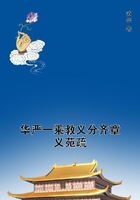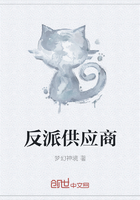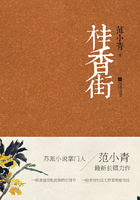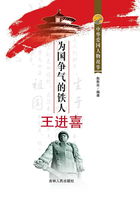Sir William Petty, whose mere assertion carries great weight, informs us that a labourer was by no means in the lowest state who received for a day's work fourpence with food, or eightpence without food. Four shillings a week therefore were, according to Petty's calculation, fair agricultural wages.192That this calculation was not remote from the truth we have abundant proof. About the beginning of the year 1685 the justices of Warwickshire, in the exercise of a power entrusted to them by an Act of Elizabeth, fixed, at their quarter sessions, a scale of wages for the county, and notified that every employer who gave more than the authorised sum, and every working man who received more, would be liable to punishment. The wages of the common agricultural labourer, from March to September, were fixed at the precise amount mentioned by Petty, namely four shillings a week without food. From September to March the wages were to be only three and sixpence a week.193But in that age, as in ours, the earnings of the peasant were very different in different parts of the kingdom. The wages of Warwickshire were probably about the average, and those of the counties near the Scottish border below it: but there were more favoured districts. In the same year, 1685, a gentleman of Devonshire, named Richard Dunning, published a small tract, in which he described the condition of the poor of that county. That he understood his subject well it is impossible to doubt; for a few months later his work was reprinted, and was, by the magistrates assembled in quarter sessions at Exeter, strongly recommended to the attention of all parochial officers. According to him, the wages of the Devonshire peasant were, without food, about five shillings a week.194Still better was the condition of the labourer in the neighbourhood of Bury Saint Edmund's. The magistrates of Suffolk met there in the spring of 1682 to fix a rate of wages, and resolved that, where the labourer was not boarded, he should have five shillings a week in winter, and six in summer.195In 1661 the justices at Chelmsford had fixed the wages of the Essex labourer, who was not boarded, at six shillings in winter and seven in summer. This seems to have been the highest remuneration given in the kingdom for agricultural labour between the Restoration and the Revolution; and it is to be observed that, in the year in which this order was made, the necessaries of life were immoderately dear. Wheat was at seventy shillings the quarter, which would even now be considered as almost a famine price.196These facts are in perfect accordance with another fact which seems to deserve consideration. It is evident that, in a country where no man can be compelled to become a soldier, the ranks of an army cannot be filled if the government offers much less than the wages of common rustic labour. At present the pay and beer money of a private in a regiment of the line amount to seven shillings and sevenpence a week. This stipend, coupled with the hope of a pension, does not attract the English youth in sufficient numbers; and it is found necessary to supply the deficiency by enlisting largely from among the poorer population of Munster and Connaught. The pay of the private foot soldier in 1685 was only four shillings and eightpence a week; yet it is certain that the government in that year found no difficulty in obtaining many thousands of English recruits at very short notice. The pay of the private foot soldier in the army of the Commonwealth had been seven shillings a week, that is to say, as much as a corporal received under Charles the Second;197 and seven shillings a week had been found sufficient to fill the ranks with men decidedly superior to the generality of the people. On the whole, therefore, it seems reasonable to conclude that, in the reign of Charles the Second, the ordinary wages of the peasant did not exceed four shillings a week; but that, in some parts of the kingdom, five shillings, six shillings, and, during the summer months, even seven shillings were paid. At present a district where a labouring man earns only seven shillings a week is thought to be in a state shocking to humanity. The average is very much higher; and in prosperous counties, the weekly wages of husbandmen amount to twelve, fourteen, and even sixteen shillings. The remuneration of workmen employed in manufactures has always been higher than that of the tillers of the soil. In the year 1680, a member of the House of Commons remarked that the high wages paid in this country made it impossible for our textures to maintain a competition with the produce of the Indian looms. An English mechanic, he said, instead of slaving like a native of Bengal for a piece of copper, exacted a shilling a day.198 Other evidence is extant, which proves that a shilling a day was the pay to which the English manufacturer then thought himself entitled, but that he was often forced to work for less. The common people of that age were not in the habit of meeting for public discussion, of haranguing, or of petitioning Parliament. No newspaper pleaded their cause. It was in rude rhyme that their love and hatred, their exultation and their distress, found utterance. A great part of their history is to be learned only from their ballads. One of the most remarkable of the popular lays chaunted about the streets of Norwich and Leeds in the time of Charles the Second may still be read on the original broadside. It is the vehement and bitter cry of labour against capital. It describes the good old times when every artisan employed in the woollen manufacture lived as well as a farmer. But those times were past. Sixpence a day was now all that could be earned by hard labour at the loom. If the poor complained that they could not live on such a pittance, they were told that they were free to take it or leave it. For so miserable a recompense were the producers of wealth compelled to toil rising early and lying down late, while the master clothier, eating, sleeping, and idling, became rich by their exertions. Ashilling a day, the poet declares, is what the weaver would have if justice were done.199 We may therefore conclude that, in the generation which preceded the Revolution, a workman employed in the great staple manufacture of England thought himself fairly paid if he gained six shillings a week.
同类推荐
LEGENDS AND LYRICS - SECOND SERIES
本书为公版书,为不受著作权法限制的作家、艺术家及其它人士发布的作品,供广大读者阅读交流。汇聚授权电子版权。
热门推荐
破碎的星球三部曲
在静寂的安宁洲中,一条巨大的红色裂隙将大陆从中心撕裂,残酷可怕的“第五季”到来。桑泽帝国的心脏尤迈尼斯城面临崩溃。伊松隐姓埋名在雷诺镇上,她的平静生活一夕之间不复存在,命运走向不可逆转的另一个极端。一座城市变成废墟,一个帝国陷入恐惧。人类文明进入冰冷永夜,毁灭季越来越黑暗。















